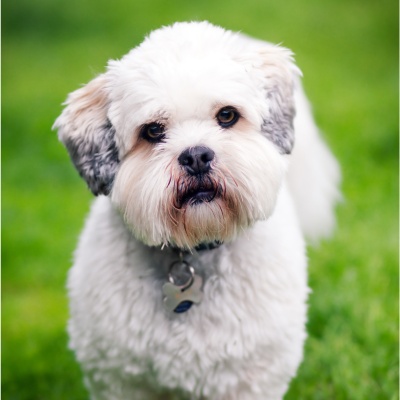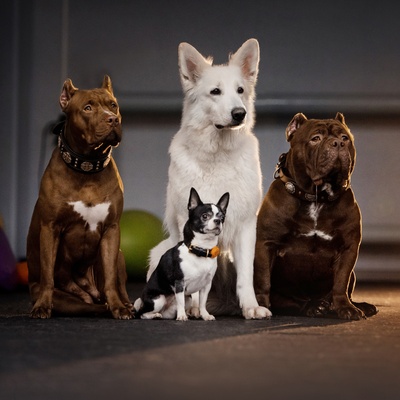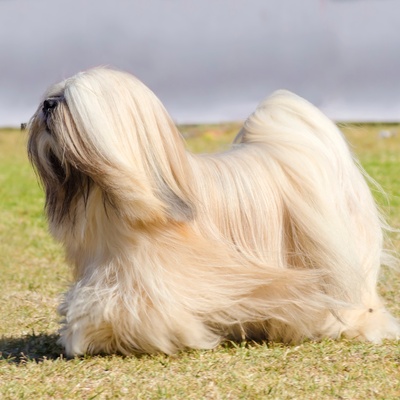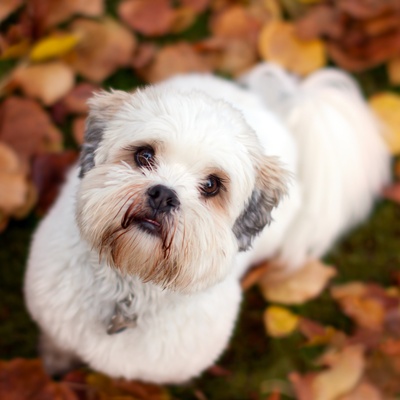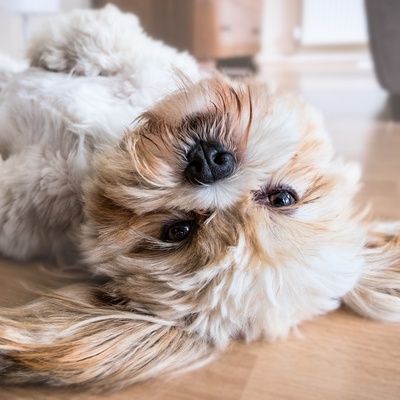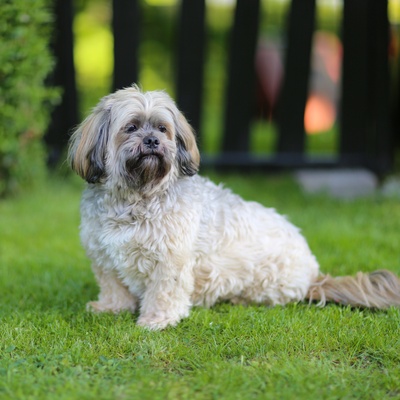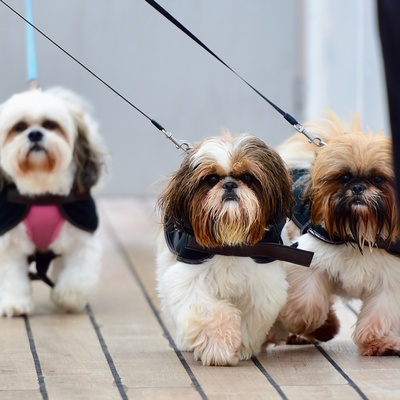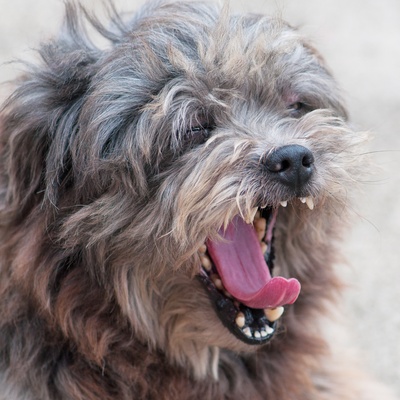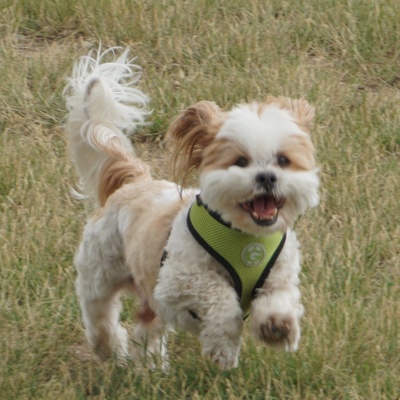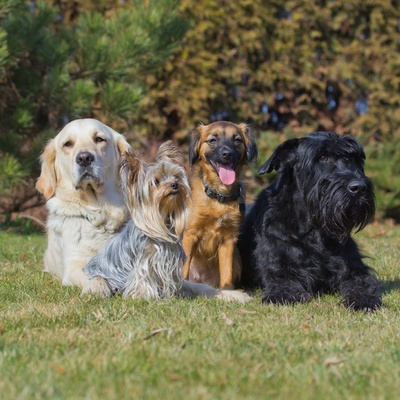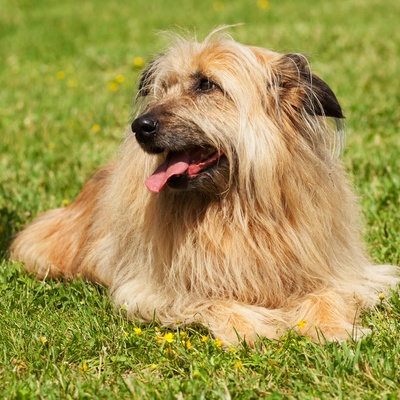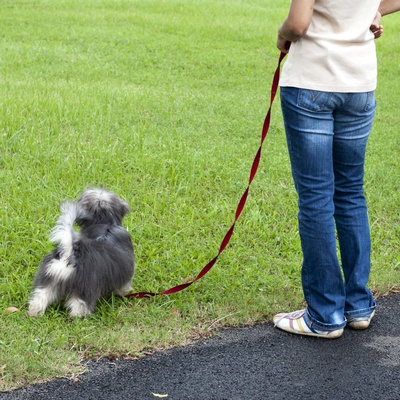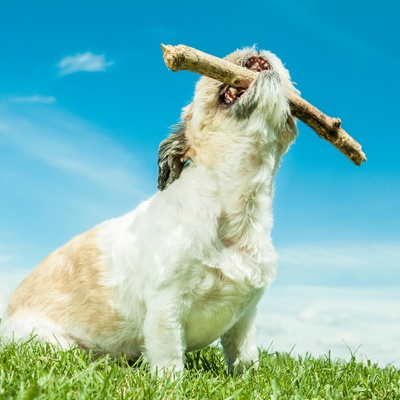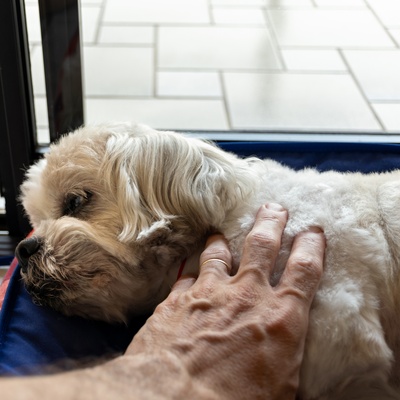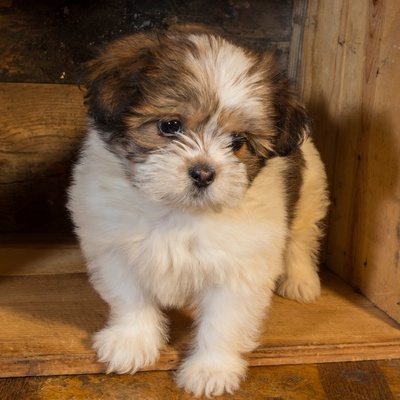Introducing the Lhasa Apso
Find out everything you need to know about the Lhasa Apso: its characteristics, its behavior, its education, its price.
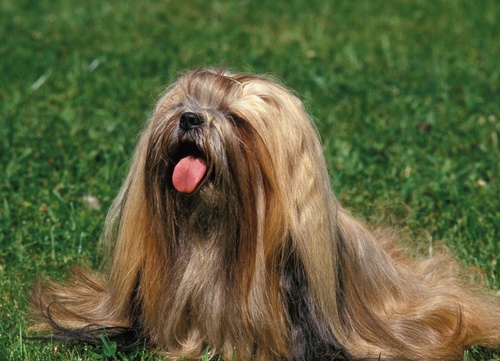
Find out everything you need to know about the Lhasa Apso: its characteristics, its behavior, its education, its price.
The Lhasa Apso, originating from Tibet, was bred by monks as sentinel dogs. Today, they are loved for their luxurious coats, loyalty, and affectionate nature.
Small but brave, Lhasa Apsos are excellent watchdogs with sharp hearing. They form strong bonds with their owners, making them ideal family pets. Whether as loyal companions or show dogs, Lhasa Apsos excel in many roles, offering both protection and affection.
This section outlines the unique features of the Lhasa Apso.
The Lhasa Apso belongs to the Non-Sporting Group, known for unique appearances and diverse temperaments. They are alert and independent.
Lhasa Apsos are small dogs. They typically stand about 10 to 11 inches tall and weigh between 12 to 18 pounds.
Lhasa Apsos have a long, flowing coat. Their fur is dense and straight, requiring regular grooming to maintain its health and appearance.
The coat of a Lhasa Apso can vary. Dominant colors include gold, white, and brown, with various shades and combinations possible within these colors.
Lhasa Apsos adapt well to apartment living. They are suited for both urban and suburban environments as long as they receive regular exercise.
Lhasa Apsos are generally friendly and affectionate. They are good with children and can get along well with other pets if properly socialized.
Lhasa Apsos are generally healthy dogs. However, they can be prone to genetic conditions such as hip dysplasia and progressive retinal atrophy.
Lhasa Apsos are intelligent but can be independent. They are moderately easy to train with patience and positive reinforcement, responding well to kind and consistent handling.
We can help!
Every dog has its own character, and so do you. Making the right choice will ensure his well-being and yours.
Take our quiz to find out which breed is right for you, based on your personality, lifestyle, location and many other criteria.
Don't wait any longer and take the quiz to find out the answer!
Lhasa Apsos are small, well-proportioned dogs with a luxurious long coat and a distinctive, lion-like face. Their expressive eyes and confident stance give them an elegant presence.
The Lhasa Apso is a small breed. Females are typically 9-10 inches, while males can be up to 11 inches tall. Females usually weigh 12-14 pounds, and males range from 14-18 pounds. They reach their adult size and weight by 12 to 18 months.
Lhasa Apsos have a long, straight, and silky coat, with fringes around their legs and face.
Lhasa Apsos come in various colors, including gold, white, black, and combinations of these.
Lhasa Apsos require regular grooming due to their long, dense coat. They shed moderately year-round, with increased shedding during seasonal changes. Daily brushing prevents matting, and regular baths every 3 to 4 weeks keep their coat clean.
The Lhasa Apso is a balanced, well-proportioned dog. They have a moderately narrow head with a distinct stop and medium-length muzzle. Their large, dark, oval eyes are expressive, and their pendant ears are heavily feathered, set slightly above eye level. The body is compact and sturdy, with a straight back and well-developed muscles. The tail is high-set and curls over the back.
Lhasa Apsos are loyal, protective, and affectionate, with an independent and strong-willed nature.
There are around 400 dog breeds divided into 10 groups.
The Lhasa Apso belongs to the Non-Sporting Group, which includes breeds like Bulldogs, Dalmatians, and Poodles. These dogs are known for their versatility and adaptability.
Lhasa Apsos are alert, intelligent, and affectionate. Originally bred as sentinel dogs in Tibetan monasteries, they now serve primarily as loyal companions.
Lhasa Apsos are loyal and independent. They bond strongly with their owners and are very affectionate. They need a present and attentive owner for their well-being.
Lhasa Apsos are sociable and good with children but can be selective in their interactions. Early socialization is crucial to ensure they are comfortable with strangers and other animals. They make excellent family pets.
Take the test and find out the dog breed that matches your personality and lifestyle.
Lhasa Apsos adapt well to different living situations, whether in apartments, houses, urban, or rural environments. They thrive on attention from their owners and need at least two walks a day, each lasting around 20-30 minutes.
While adaptable, Lhasa Apsos benefit from access to an outdoor environment where they can explore and expend their energy. Regular outdoor activities are essential to satisfy their curiosity and keep them active and healthy.
Lhasa Apsos are intelligent and capable of learning quickly, but their independent nature requires a patient and consistent training approach. Positive reinforcement methods, such as rewards and praise, work best. To prevent losses or escapes, equipping them with a GPS collar is recommended.
Lhasa Apsos have good listening skills, but they can be stubborn. Early socialization and consistent training are crucial. They respond well to praise and rewards, making them more cooperative and obedient over time.
Lhasa Apsos are generally healthy, but daily care is crucial to prevent diseases and infections.
Lhasa Apsos are robust but can have issues like hip dysplasia, progressive retinal atrophy, and kidney problems. Their lifespan is typically 12 to 15 years.
Regular vet check-ups, vaccinations, and parasite treatments are essential. Daily care includes brushing their coat, cleaning their ears, dental care, and nail trimming. Watch for allergies and consult your vet. The Lhasa Apso is not hypoallergenic.
Lhasa Apsos, like all dog breeds, have specific nutritional needs. A balanced diet is essential for their vitality and strength. Their diet should be rich in proteins and vitamins to meet their nutritional requirements. Premium kibble designed for small breeds provides a solid dietary foundation. For additional protein needs, lean white and red meat can be added, but it's important to limit fats.
The Lhasa Apso is a well-regarded breed with several breeders available. It's important to consider several factors before adopting.
Selecting a reputable breeder is crucial. Visit the breeder to assess living conditions and the health of the dogs. Ensure transparency about the puppy's health and lineage. You must have your dog microchipped by 8 weeks old and registered on a database like Petlog or Animal Tracker to avoid a
fine. Your vet or a Blue Cross center can handle this.
Lhasa Apso puppies typically cost between
and
, depending on factors like lineage and breeder reputation. Annual maintenance costs, including veterinary fees and food, are around
to
Choosing a dog that matches your personality and lifestyle will ensure your well-being and his!
